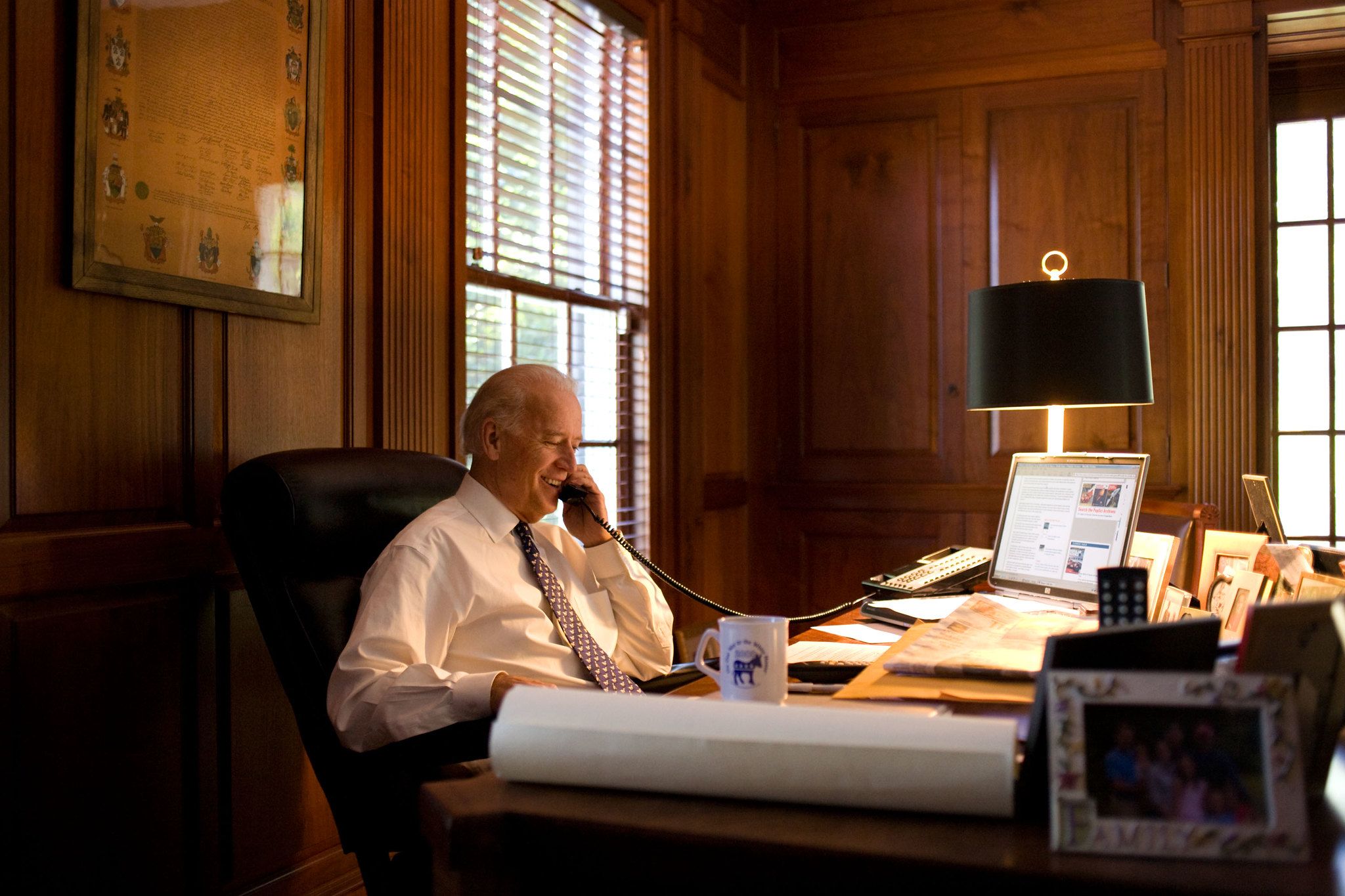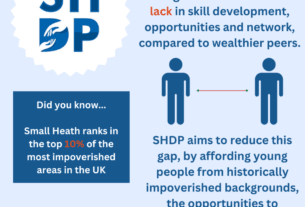Support NewsLeaf.com from as little as £1 by donating via PayPal. Click here to donate.
Donald Trump is on his farewell tour. After two consecutive days of – alleged – negative test results according to the White House physician, he is back on the campaign trail visiting the battleground states that he won in 2016, but is set to lose in 2020. After South Carolina, where he is trailing by four points, he headed down to Florida for what will likely be his last appearances as the President of the United States; from there he moved on to Georgia, a state that he might actually hold on to, but it won’t be enough.
With less than three weeks to go, Biden looks likely to clean up in Michigan, Pennsylvania, Arizona, Wisconsin and Florida; enough to take him across the 270 Electoral College votes needed to win. Having formed his transition team several months ago already, it is not therefore too early to look ahead at what a Biden presidency might look like.
Back in 2008, young upstart Senator Barack Obama had just secured the delegates required to become the Democratic nominee, but he faced a problem. He was the young progressive African American that offered hope and optimism to young Americans of colour, but to older moderate Democrats who grew up in an era of segregation, he was an unknown quantity to be scared of.
With this in mind, the young African American nominee selected an almost 70-year-old white man who made his name as a moderate Democrat, opposed bussing and championed controversial incarceration legislation and counted many white supremacist southern representatives as friends, as his running mate. For Obama this worked; the voters knew Joe – he had been in the Senate for more than three decades by 2008 and he managed to beat out one of Biden’s more moderate Republican friends, John McCain.
Yet, despite his lack of progressive credentials, it looks like a Biden administration could have a surprisingly progressive makeup. With the former prosecutor and first-ever black woman to be on a major party ticket, Kamala Harris, as his vice-presidential nominee, there is a significant feeling that a Biden White House could make significant strides in creating police reform, going some way to arresting the significant disparity in outcomes between white and black Americans interactions with the police.
Become a Patron!*Support NewsLeaf.com by becoming a Patron today by clicking here.*
With Biden’s major rivals in the presidential race being progressive Democrats, with Bernie Sanders and Elizabeth Warren (considered the Senate’s two most progressive figures) both making it to the last four in the Democratic primary, Biden has tacked somewhat to the left to win their base’s support. Back in 2016, Hillary Clinton played hardball with the progressive members of the Democratic party, and her campaign’s failure to mobilise support from progressive Democrats was a large factor in her defeat; Biden is determined not to make the same mistake.
Whether his progressive credentials are to be believed is another matter, but his talk in the final Democratic primary debates of writing off student debt for low-income Americans and some passages on his website of transitioning to a green economy certainly are promising.
But perhaps more important than a Biden White House is what a Democratic Senate could bring. Though the chances of a Democratic Senate are smaller than those of a Democratic White House, should a majority of Democrats be returned on November 3rd, the Health Committee will be chaired by Senator Bernie Sanders, who has already promised to fight for ‘Medicare for all’ and a 15-dollar minimum wage.
In all likelihood, these will not be priorities for a Biden White House, but with his promise to Build Back Better, and if the Bernie coalition plays a vital role in delivering Biden the keys to the White House, then Sanders could have significant sway over White House policy.
Much like in 2008, when Obama’s cabinet was delivered to him on a silver platter by the Wall Street lobbyists (appointing almost the entirety of a list provided to him by Citigroup) a Biden White House will probably have a similar corporate makeup; political will, however, might see winds of change flowing through Pennsylvania Avenue.
Also read:
- Dynamite’ by BTS tops the Global YouTube Songs Chart again
- ‘Misogyny in the Muslim Space’
- Taylor Swift is the new Queen of Music as she breaks Whitney Houston’s record
Just down the street from the new Black Lives Matter boulevard, the Biden White House may provide the moderate voice needed to push through more significant reform in Congress.
Throughout the campaign Biden has been clear that his first 100 days will be about a return to normalcy; re-entering the Paris Climate Accords, observing the Iran Nuclear Treaty and reversing many of the executive orders Trump introduced to restrict immigration – both for refugees and tourists.
The first 100 days will no-doubt disappoint those looking for whole scale change in an American that after four years of Trump has a significant appetite for change, yet once he gets his feet under the resolute desk, more permanent transition could occur.
With Barack Obama no doubt seeing a Biden administration as a chance to solidify much of his own reform – and go beyond what he was able to achieve – albeit unofficially, it would not be surprising to see Biden’s campaign rhetoric take shape in the event of a Democratic Senate.
An often-contradictory politician, whose image has shifted from an anti-bussing, social conservative, to a popular figure amongst civil rights leaders, Biden is somewhat of a blank slate for policy to be etched into. If he wins next month he will go down as the Vice President to America’s first black President and the President who worked to ensure there was an African American woman just a heartbeat away from the presidency.
It is unlikely that he will want to sour this legacy by proving a stubborn old hand in the face of willingness for progressive reform; a Biden White House might prove to be more progressive than we think.
_____________________________________________________________________________

Calum Paton is a History and Politics graduate from the University of Warwick and he is currently studying a MA at the University of Law. His writing predominantly focuses on American and British politics. Twitter: @Paton_Calum




